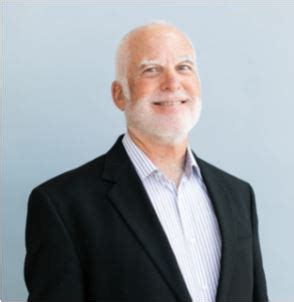A Quote by Rudyard Kipling
When young lips have drunk deep of the bitter waters of hate, suspicion and despair, all the love in the world will not wholly take away that knowledge. Though it may turn darkened eyes for a while to the light, and teach faith where no faith was.
Related Quotes
There is no such thing as a faithless person; we either have faith in the power of love, or faith in the power of fear. For faith is an aspect of consciousness. Have faith in love, and fear will lose its power over you. Have faith in forgiveness, and your self-hatred will fall away. Have faith in miracles, and they will come to you.
Some relate . . . that the eagle tries the eyes of her young by turning them to the sun; which if they cannot look steadily on, she rejects them as spurious. We may truly try our faith by immediate intuitions of the Sun of Righteousness. Direct faith to act itself, immediately and directly on the incarnation of Christ and His mediation; and if it be not the right kind and race, it will turn its eyes aside to anything else.
Faith is indeed intellectual; it involves an apprehension of certain things as facts; and vain is the modern effort to divorce faith from knowledge. But although faith is intellectual, it is not only intellectual. You cannot have faith without having knowledge; but you will not have faith if you have only knowledge.
Optimism is an alienated form of faith, pessimism an alienated form of despair. If one truly responds to man and his future, ie , concernedly and "responsibly." one can respond only by faith or by despair. Rational faith as well as rational despair are based on the most thorough, critical knowledge of all the factors that are relevant for the survival of man.
Thou, Everlasting Strength, hast set Thyself forth to bear our burdens. May we bear Thy cross, and bearing that; find there is nothing else to bear; and touching that cross, find that instead of taking away our strength, it adds thereto. Give us faith for darkness, for trouble, for sorrow, for bereavement, for disappointment; give us a faith that will abide though the earth itself should pass away--a faith for living, a faith for dying.
Faith, as the Bible teaches it, is faith in God coming against everything that contradicts Him- a faith that says, “I will remain true to God’s character whatever He may do.” The highest and the greatest expression of faith in the whole Bible is- “Though He slay me, yet will I trust Him” (Job 13:15).
Faith is not an art. Faith is not an achievement. Faith is not a good work of which some may boast while others can excuse themselves with a shrug of the shoulders for not being capable of it. It is a decisive insight of faith itself that all of us are incapable of faith in ourselves, whether we think of its preparation, beginning, continuation, or completion.
Take away material prosperity; take away emotional highs; take away miracles and healing; take away fellowship with other believers; take away church; take away all opportunity for service; take away assurance of salvation; take away the peace and joy of the Holy Spirit... Yes! Take it all, all, far, far away. And what is left? Tragically, for many believers there would be nothing left. For does our faith really go that deep? Or do we, in the final analysis, have a cross-less Christianity?
May I make two citations from the words of a discerning editorial writer, not one of my faith, but one of much faith: "If we neglect the divine . . . and give ourselves over wholly to the human," he said, "we may certainly count upon nothing but the triumph of pessimism. . . . True optimism must rest upon a calm, unshakable faith in eternal life and in the unlimited goodness of him who gives it."
The reality of living by faith as though we were already dead, of living by faith in open communion with God, and then stepping back into the external world as though we are already raised from the dead, this is not once for all, it is a matter of moment-by-moment faith, and living moment by moment. This morning's faith will never do for this noon. The faith of this noon will never do for suppertime . The faith of suppertime will never do for the next morning. Thank God for the reality for which we were created, a moment-by-moment communication with God himself.







































